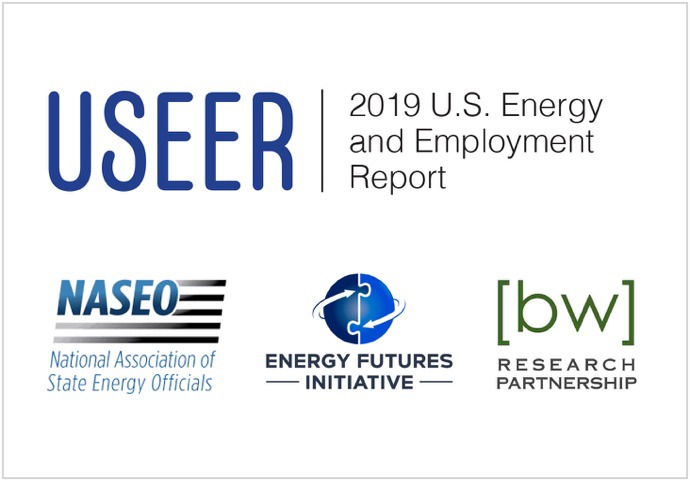 Primed to Lead Washington’s Economic Recovery
Primed to Lead Washington’s Economic Recovery
At the onset of 2020, Washington’s clean energy economy was coming off another year of solid growth, further establishing itself as the backbone—and future—of the Evergreen State’s energy sector. With more than 85,000 clean energy workers, the state ranked 13th for clean energy employment. Illustrating the important role this sector plays in Washington’s economy, the clean energy industry accounts for more than 25% of all construction jobs in the state. Importantly, these jobs’ wages and benefits compare favorably to other industries; E2’s recent Clean Jobs, Better Jobs report shows that the median wage for Washington’s clean energy economy pays nearly 11% more than the state’s overall median wage.
But following five straight years of job growth, Washington’s clean energy economy has been derailed by the economic recession driven by COVID-19. state policymakers have a central role to play as well. Tremendous job creation can be delivered by staying the course on implementation of existing clean energy policy, prime among them Washington’s Clean Energy Transformation Act. To ensure continued recovery and economic development in the years to come, state lawmakers should adopt additional policies in 2021 to drive investment and job growth in the clean energy economy. These policy opportunities—including a clean fuels program, clean truck standards, a state-wide limit on carbon pollution, and carbon pricing—can drive strong investments in climate solutions across the state. If well-designed, these and other policies have the potential to leverage Washington’s clean energy economy as an engine for broader economic recovery. Through October, more than 17,000 clean energy workers—almost one-fifth of Washington’s clean energy workforce pre-COVID—remain out of work.
Clean Jobs Washington 2020 comes at a critical juncture in the state’s efforts to recover from the COVID-19 health and economic crises. With the Washington state Legislature set to reconvene in January, policymakers will have the opportunity to leverage clean energy as an engine for broader economy recovery by enacting policies to get clean energy back on its growth trajectory. Policies such as a clean fuels program, clean truck standards, a state-wide limit on carbon pollution, and carbon pricing can drive investments in climate solutions and bring robust economic growth across the state.
This report details the size, scope, and diversity of this core Washington state employment sector, the troubles it is currently facing due to the pandemic, and the promise that strategic policy direction and stimulus investments in clean energy hold to drive a durable and sustainable recovery for Washington’s economy. In addition to detailing sector-by-sector employment, Clean Jobs Washington 2020 also breaks down jobs at the city, county, legislative and congressional district levels. See more details here.
A BIGGER PICTURE
This report focuses solely on the energy sector of the economy and does not include jobs in retail trade, repair services, water or waste management, and indirect employment or induced employment.
WASHINGTON CLEAN JOB EMPLOYMENT Q4 2019
- Energy Efficiency – 64,930 jobs
- Renewable Energy – 11,189 jobs
- Solar Energy – 5,081 jobs
- Clean Vehicles – 3,351 jobs
- Wind Energy – 3,310 jobs
- Energy Storage – 2,451 jobs
- Clean Fuels – 1,936 jobs
- Grid Modernization – 1,176 jobs
- ALL Clean Energy Sectors – 85,035 jobs
OTHER FINDINGS
- Small businesses are the backbone of Washington’s clean energy economy. More than two out of every three (69%) clean energy workers were employed at companies with fewer than 20 workers;
- 1 in 4 construction jobs in Washington are in clean energy occupations, from solar installers and site workers to electricians, HVAC technicians, lighting technicians, carpenters and others who work in energy efficiency;
- Washington ranked in the top 15 for jobs in 12 sectors and subsectors in 2019 – helping the state diversify jobs growth across the clean energy economy;
- Clean energy accounts for 55% of all energy sector jobs in Washington and made up 74% of the sector’s total job growth in 2019;
DOWNLOAD
The complete report is available for download at this link.
Previous Reports
-
- 2019 | Clean Jobs Washington 2019
- 2018 | Clean Jobs Washington 2018
Looking For More Info?
This report follows E2’s Clean Jobs America analysis which found the clean energy jobs account for nearly 3.3 million jobs across all 50 states and the District of Columbia. Both reports expand on data from the U.S. Energy and Employment Report (USEER) produced by the Energy Futures Initiative (EFI) in partnership with the National Association of State Energy Officials (NASEO), using data collected and analyzed by the BW Research Partnership. E2 is a partner on the USEER, the fifth installment of the energy survey first released by the Department of Energy in 2016.
If you are looking for additional insight into E2’s Clean Jobs Washington 2019 or our other Clean Jobs America reports, visit e2.org/reports. You can also contact E2 Communications Director Michael Timberlake (mtimberlake@e2.org). An FAQ is also available here to answer any questions.

